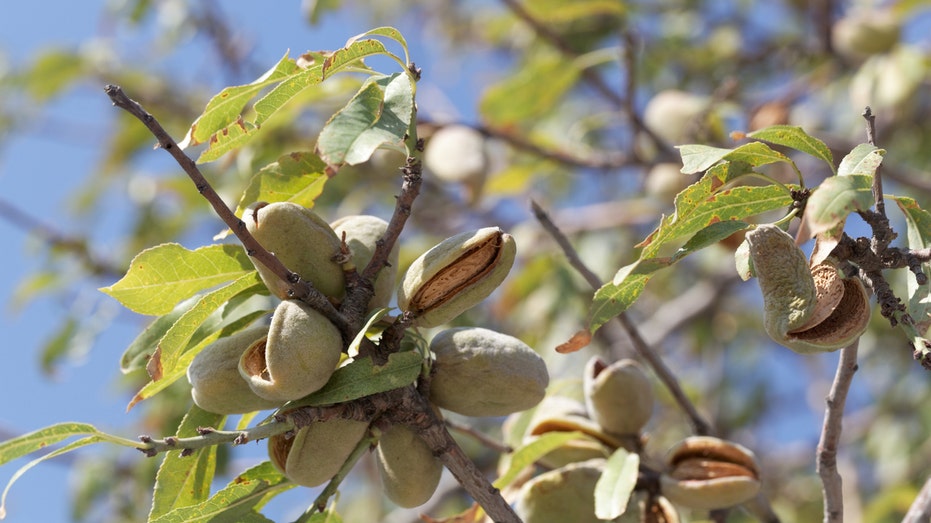American tree nut farmers hit with surplus amid international trade complications
As the crop yield hits a record 3 billion pounds and export prices down at least 20 percent, farmers are nervous.
That’s nuts.
America’s farmers reportedly have such an extreme abundance of nuts, due in part to international exports being complicated because of the coronavirus pandemic, that branches are nearly breaking under the weight of the crop.
SHOULD YOU STILL RETIRE IN 2020?
In a report from Bloomberg, the U.S. produces and exports the most tree nuts – such as walnuts, almonds and pecans – in the world, and half of the harvested nuts are exported.
Now as the crop yield hits a record 3 billion pounds and export prices reportedly down at least 20 percent, farmers are nervous.

America’s farmers reportedly have such an extreme abundance of nuts, due in part to international exports being complicated because of the coronavirus pandemic, that branches are nearly breaking under the weight of the crop. (iStock)
GET FOX BUSINESS ON THE GO BY CLICKING HERE
“We’re nervous, especially for next year, with where prices are,” said BIll Carriere, farmer and owner of the Carriere Family Farms who is also on the California Walnut Board and California Walnut Commission, to Bloomberg. “They could get below the cost of production.”
But now, as the reported $9.5 billion industry is dependent on international trade, farmers are feeling the squeeze. Demand from China, one of the main receivers of nuts from the United States, has lowered due to trade tensions, as well as a focus on growing its own crops, and now, with coronavirus, which has further complicated exporting goods.
CLICK HERE TO READ MORE ON FOX BUSINESS
The surplus seems to have been sparked by increased planting of trees in response to the high demand for the protein-rich, healthy snack because of the popularity in diets like keto and paleo, both of which shun processed foods for "clean eating," Bloomberg points out.
CLICK HERE TO GET THE FOX NEWS APP
“It’s been five years since the last trees were planted, and now that production is hitting, and the young trees are coming on board,” said Carriere to the outlet, noting farmers will be dealing with large crops “for the next few years.”




















